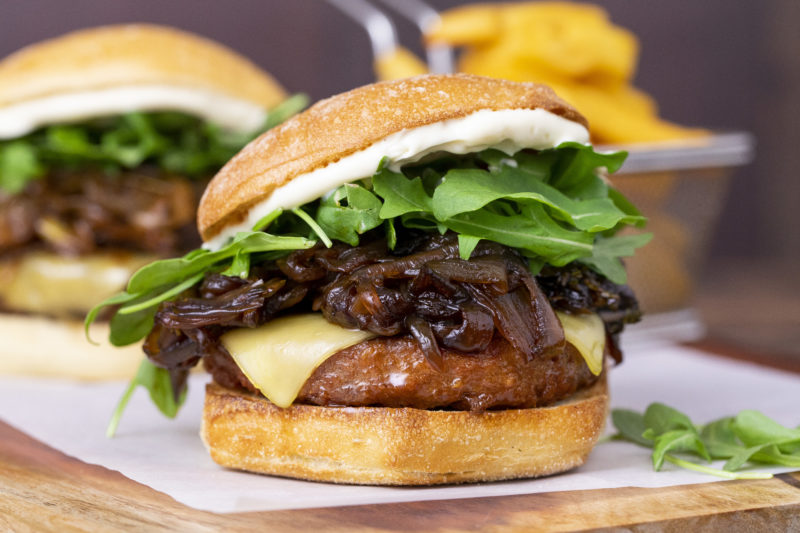Conscious Eating and Redefining Comfort Food

When was the last time you sat down to enjoy a meal by yourself at a table in silence? This means no TV, no radio, no newspaper, no phones or computers. Conscious eating moments can be few and far between these days.
We’ve all had that experience where we get in our cars to go somewhere and then suddenly find ourselves at our destination without any recollection of the path we took to get there. It’s kind of the same thing when we sit down in front of the television with a bag of chips and suddenly the bag is empty. Our mind is somewhere else and we are no longer paying attention to where we are or to what we are doing.
When I used to work directly with clients in a nutritional setting, they’d often state that they had no idea what they were doing wrong in their struggle towards achieving their health goals. One of the first things I would ask them to do is to keep a food journal.
What Is Conscious Eating?
Often we are so busy in our heads, that we aren’t paying attention to what we are feeding our bodies, and what we are using to fuel our bodies.
This food journal is a forced awareness for our eating – something often referred to as conscious eating. Traditionally used as a form of yogic practice, given that most of us eat our meals on the go, a little conscious eating could do us a world of good. All it means is simply paying attention to eating, paying attention to preparing, to serving, to chewing, to tasting, to enjoying our food for the simple pleasures of the food itself.
Unhealthy eating patterns are often caused by tension and stress. When we experience stress or negative emotions, we lose energy. Unconsciously, we want to eat to replace that lost energy. Simply noticing how we feel before we reach for that chocolate cake, or third beer is the first step. Start with one conscious meal a week and then step it up to two. The more awareness we bring to what, where, when and why we are eating, the sooner great health will unfold before us.
For many of us, it may simply begin with refining what comfort actually is, or needs to be.
How do we define comfort food?
Comfort food is typically defined as being cheap and easy – inexpensive and simple to prepare. We’ll often gravitate towards meals we had as kids for a sense of familiarity, emotional security, or as a special reward. It’s pretty obvious in small children – we’ll see them latch on to specific foods or drinks and request them repeatedly, often more noticeable when they are feeling distress. Most of us are no different as adults. We have our go-tos whether it’s breakfast for dinner (scrambled eggs and toast, anyone), or a food that is traditional to our culture.
When I’m teaching the Culinary Nutrition Expert Program and we get to the topic of comfort food, I love asking them to share theirs. Depending on our own cultural heritage and where we were raised, we’ll each have our own favourite comfort foods. Mac and cheese is not in fact universal. Go figure!
The hunger we respond to is produced by our minds, our craving for taste sensations. That craving is simply a desire to recreate previous experiences. These are simply habits based on memories of pleasurable tastes. These habits can decrease our health, rather than improving our health and well-being. We must understand that what we choose to feed ourselves with ultimately impacts what we will get from our bodies.
Can Food Be Our Fuel And Be Delicious?
The quality of what we put in, will determine the quality of what we get out. This includes our productivity, our efficiency, our joy, and the pleasure we derive from our life experiences. This entire kit and caboodle will be impacted by what we choose to feed ourselves with. Conscious Eating is simply a practice that helps us tune into what our body actually needs and make choices accordingly.
A key here is paying attention to the happenings in our lives that prompt us to reach for certain foods. Once you start to recognize your triggers, you can start to bring mindfulness to your choices. That awareness is mighty powerful.
We lose more energy than we gain if we make poor food choices. We expend more energy processing the food than the food gives us, and a low-energy cycle is created.
Basic Rules for Conscious Eating
- Listen to your body.
- Follow the wisdom inherent in your own body to guide you to healthy food choices.
- Use discrimination when eating anything – even organic, whole, natural foods.
- Eat when you feel a natural hunger in your body.
- Be aware of your unconscious motivations when eating.
- Eat to satisfy the physical need of the body, not an emotional need.
- Relax as much as possible before eating.
- Let go of tension you become aware of during the day, before it saps your energy and leaves you craving something to replace that energy.
Photo: iStock/RomarioIen
Free Resource Library
Enjoy more than 40 downloadable guides, recipes, and resources.























